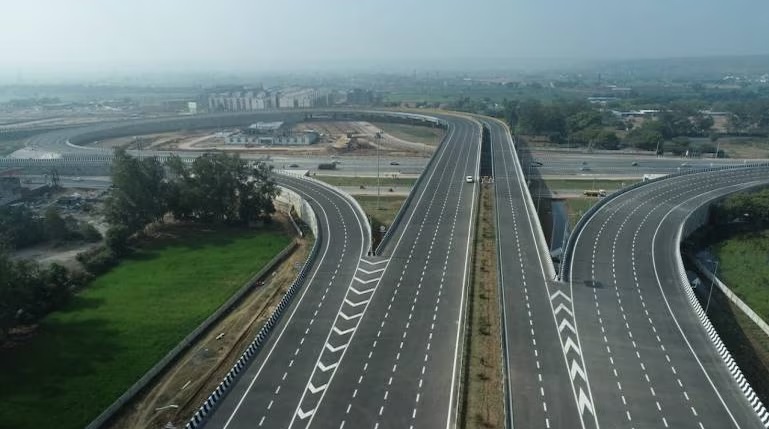Expressway speed limit: In the last few decades, the network of expressways is being laid in the country. Due to the formation of expressway, the speed of vehicles has increased and now a lot of time has been saved in reaching the destination.
Even the time taken for the transportation of goods has started reducing. But it is generally seen that many such vehicles also start running on the expressway, which are either a danger to other running vehicles or a danger to themselves. Some two wheelers are also running whose lives are always in danger.
Now NHAI i.e. National Highway Authority has decided to take some steps in this direction. The National Highways Authority of India (NHAI) has banned the entry of vehicles on some sections of the Delhi-Mumbai Expressway, which were started some time ago, which move at a slow speed or are likely to collide with fast-moving vehicles. live more. The authority has barred the entry of two-wheelers including motorcycles and scooters, three-wheelers, non-motorized vehicles and tractors with or without trailers in the newly launched Phase-I of the Delhi-Mumbai Expressway.
NHAI has also issued a gazette notification on this saying that the movement of high-speed vehicles poses a threat to the safety of some categories of relatively slow-moving vehicles. “The movement of high-speed vehicles may pose a risk to the safety of certain classes of comparatively slow-moving vehicles such as two-wheelers, three-wheelers and other slow-moving vehicles such as non-motorized vehicles, agricultural tractors, (with or without trailer) etc.”
The notification issued by the department states that this expressway was developed as a high-speed corridor and the maximum speed limit for different types of motor vehicles has been notified for the expressway, which ranges from 80 km/h to 120 km. /hour is between.
The same notification also states that prior to the development of this expressway, alternative routes and roads were and are available to the public to connect places/reach different destination points. It is noteworthy that the first completed part of the Delhi Mumbai Expressway, Delhi-Dausa-Lalsot, was dedicated to the nation by Prime Minister Narendra Modi on 12 February.
This 246 km long Delhi-Dausa-Lalsot portion of the Delhi-Mumbai Expressway has been developed at a cost of over Rs 12,150 crore. Explain that the Delhi Mumbai Expressway will be the longest expressway in India with a length of 1,386 km. Please inform that this expressway will pass through 6 states Delhi, Haryana, Rajasthan, Madhya Pradesh, Gujarat and Maharashtra and will connect major cities like Kota, Indore, Jaipur, Bhopal, Vadodara and Surat.
